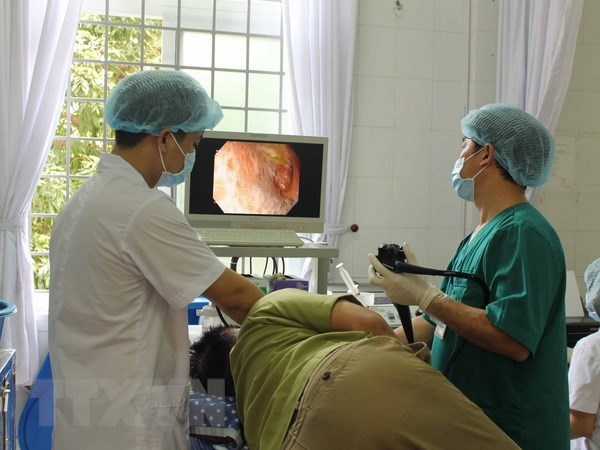 Illustrative image (Source: VNA)
Illustrative image (Source: VNA) (VNA) – announced a set of measures to
enhance the quality of at
during an event on July 16.
These include
improving the capacity of medical workers; finding new operation methods;
investing in human resources and facilities; applying information technology;
designing special financial regimes; and enhancing communication work, said Tien
at the opening of a training course on chronic disease care at commune-level
medical stations held in Ho Chi Minh City.
In the future,
services for the treatment, control, and prevention of non-communicable chronic
diseases – like diabetes, high blood pressure, cardiovascular, and respiratory
diseases – will be predominantly delivered by medical stations at ward and
commune levels.
A large network of
ward- and commune-level medical stations have been set up across the country
but the health sector has yet to make the most of them, she said, adding that
it is a waste of resources as upper-level hospitals are becoming more
overcrowded.
“This is the time we
have to develop primary care services to make drastic changes to the health
sector,” the minister stated.
Tien moved on to
suggest that ward- and commune-level medical clinics need to pay more attention
to developing traditional medicine in order to make it one of their special
advantages. She expected that such primary care providers will win public trust
with an increasing number of people visiting them over the next 10 years.
Also speaking at the
event, Director of the HCM City Department of Health Nguyen Tan Binh said the
city is striving to have at least two doctors in each medical station, with larger
ones having up to four or five doctors.
The city is also the
first in the country to establish satellite practices for district-level
hospitals at a number of the city’s ward and communal medical stations, aiming
to ease the overcrowding at higher-level health facilities and get people more
confident in the primary care system, he added.
According to the
Ministry of Health, Vietnam is aiming at having over 90 percent of the
population’s health monitored, with 95 percent of the ward- and commune-level
medical stations capable of providing preventative and treatment services for a
selection of non-communicable diseases by 2025.
To this end, the
ministry has opened a number of training courses on improving the quality of
family medicine-based care services for chronic diseases at ward- and
commune-level medical clinics across the country. Hanoi and HCM City are the
first two launching this course.
The course opened in
Hanoi on July 9 while others will take place in provinces, such as Ninh Binh,
Thanh Hoa, and Ca Mau.-VNA
Source: VietnamPlus
